
#Sportsbetting & gaming lawyer. Co-Founder @UNHLaw sports wagering. Teach @MiamiLawSchool. Contributor @Forbes. Co-Founder @Condetrimental #sportslaw podcast.
How to get URL link on X (Twitter) App

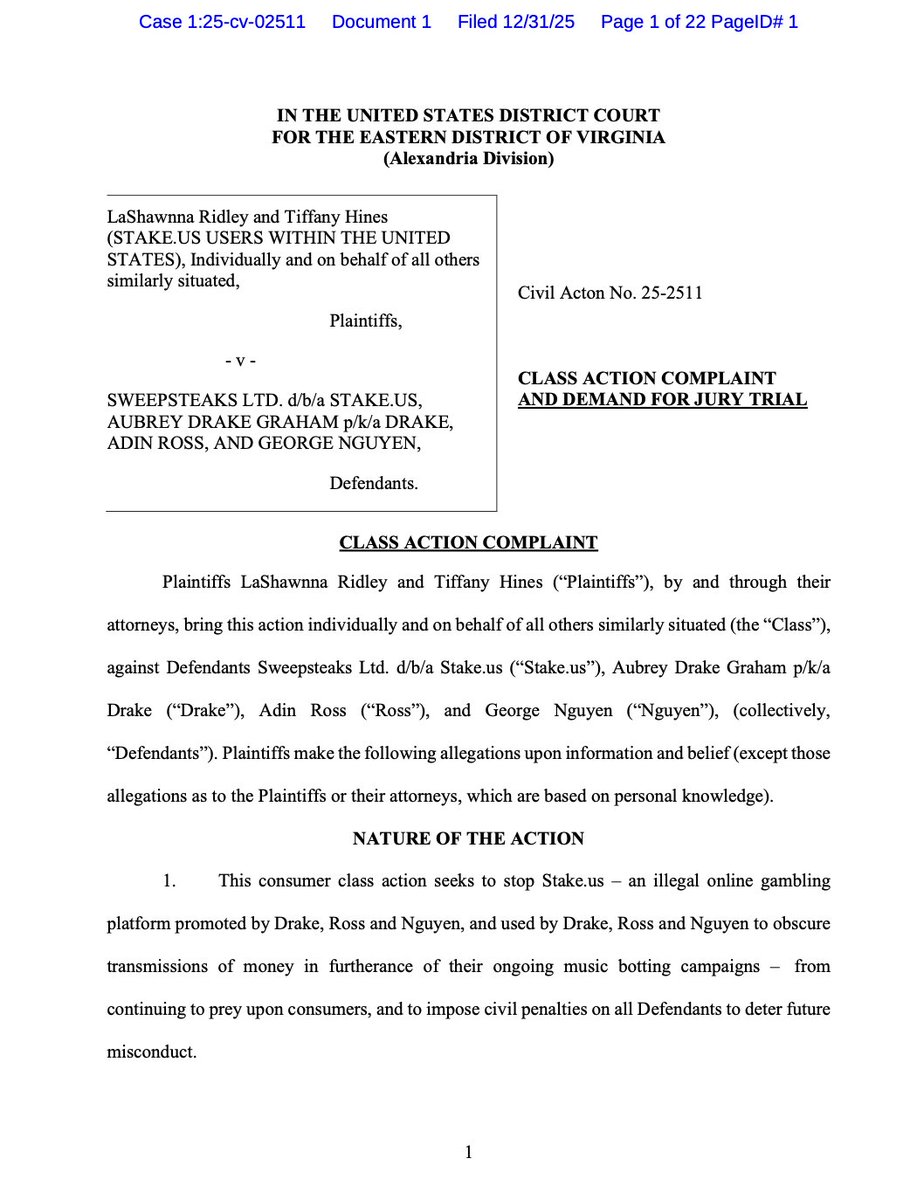
 "Drake, Ross, and Nguyen have also made use of Stake . . . to directly transfer money between and among themselves, using Stake’s 'Tipping' program – an unlimited and wholly unregulated money transmitter that appears to exist outside the oversight of any financial regulator."
"Drake, Ross, and Nguyen have also made use of Stake . . . to directly transfer money between and among themselves, using Stake’s 'Tipping' program – an unlimited and wholly unregulated money transmitter that appears to exist outside the oversight of any financial regulator." 
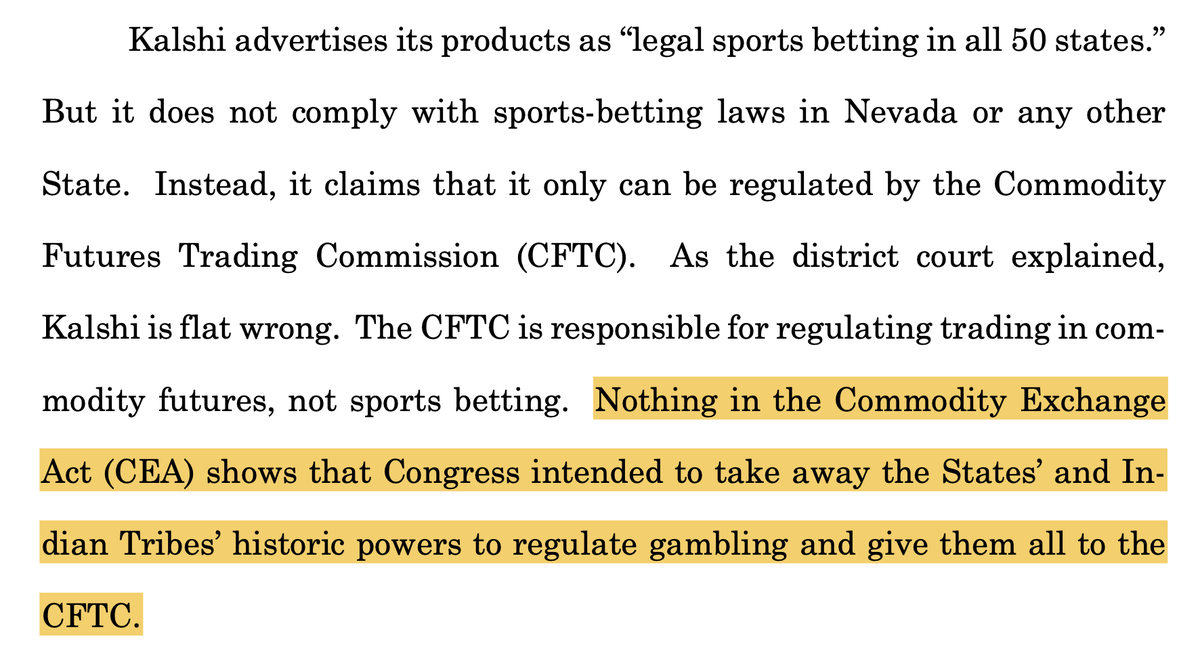
 Nevada: "Courts presume that Congress did not preempt state law, 'particularly' in cases involving 'a field which the States have traditionally occupied.' Gaming is such a field."
Nevada: "Courts presume that Congress did not preempt state law, 'particularly' in cases involving 'a field which the States have traditionally occupied.' Gaming is such a field." 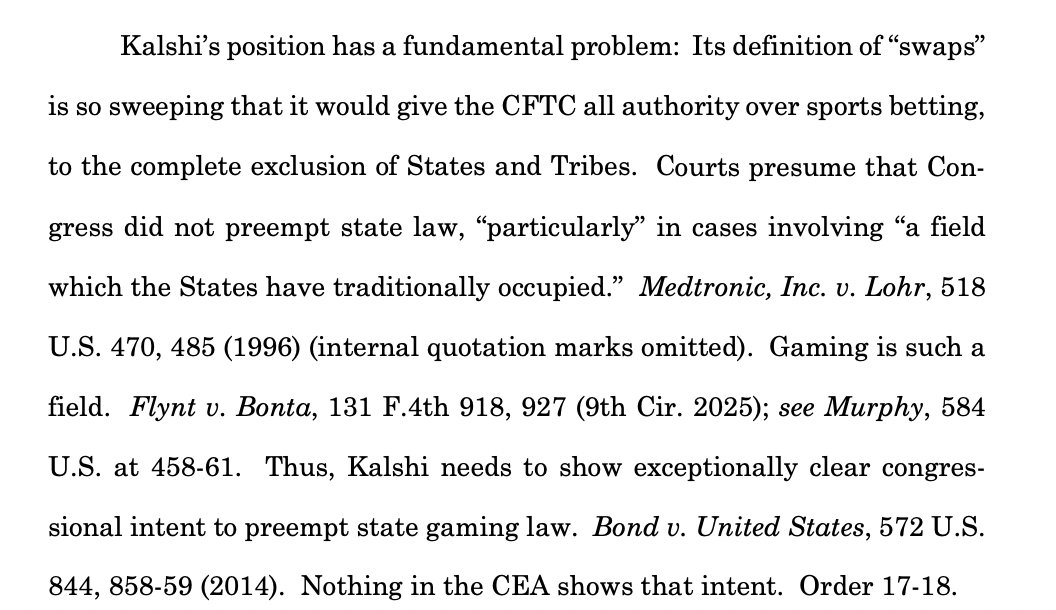
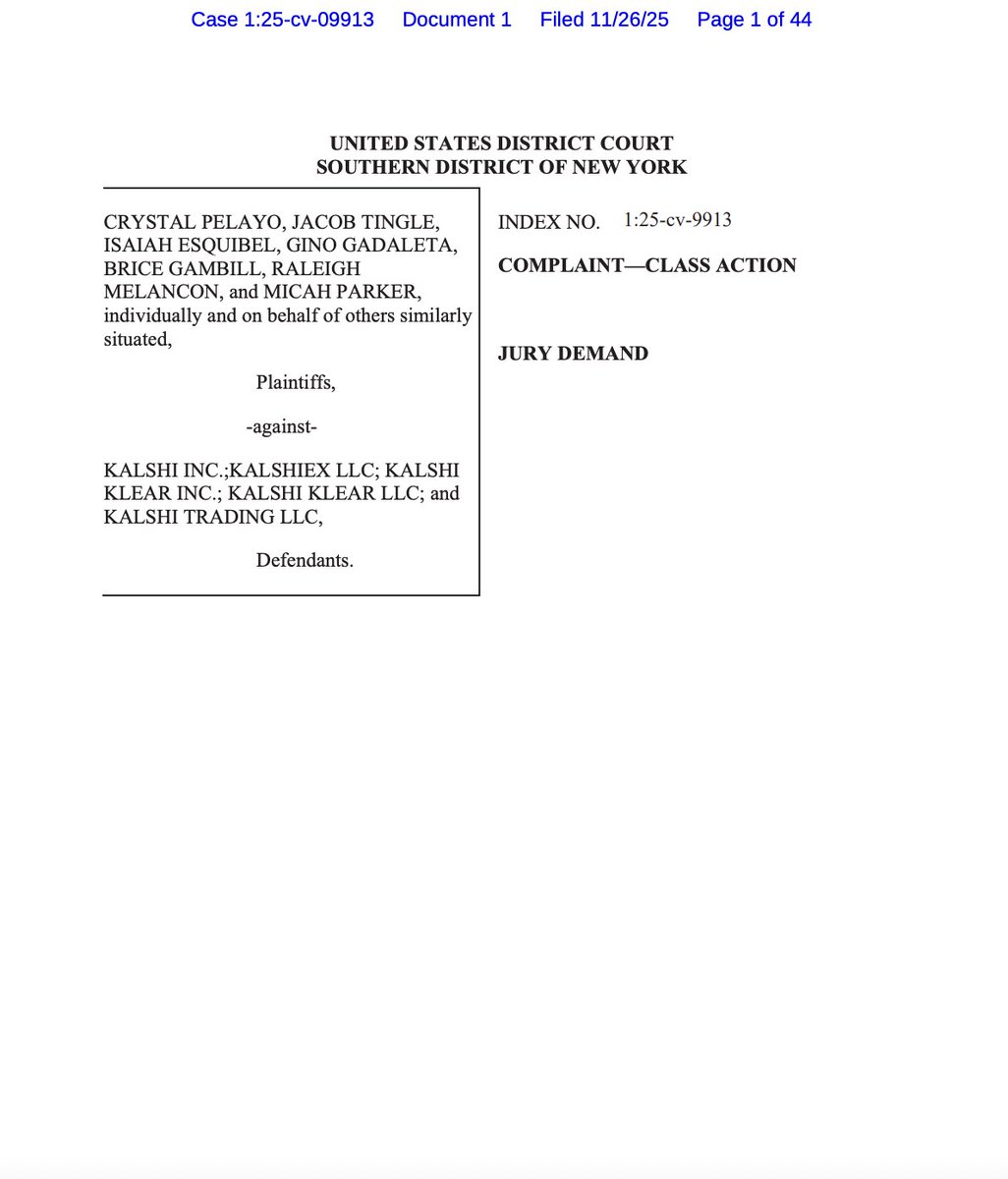

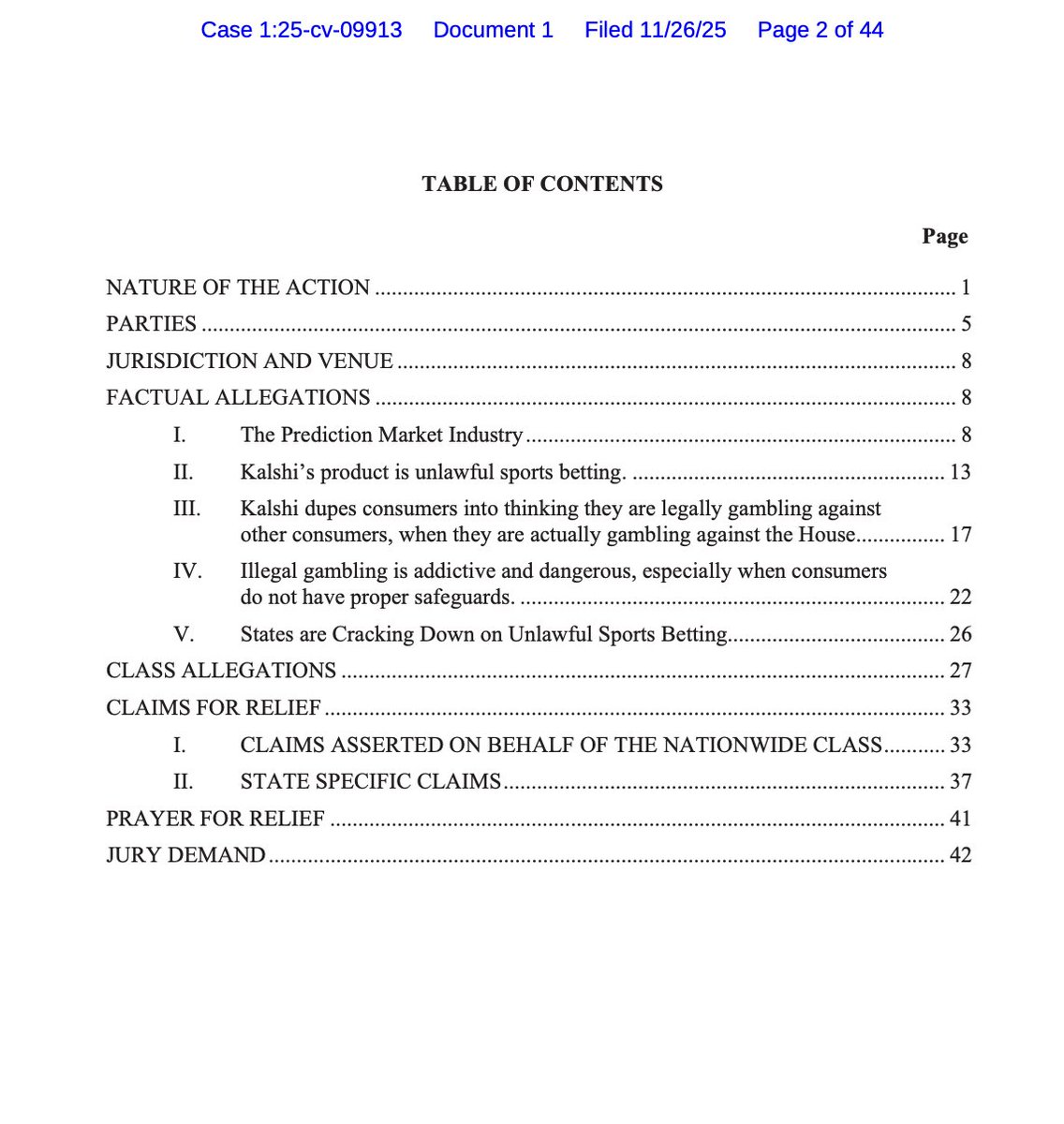 "Consumers on Kalshi do not only bet against each other—they also bet against the House. Kalshi operates institutional market makers, which also gamble against the consumer."
"Consumers on Kalshi do not only bet against each other—they also bet against the House. Kalshi operates institutional market makers, which also gamble against the consumer." 
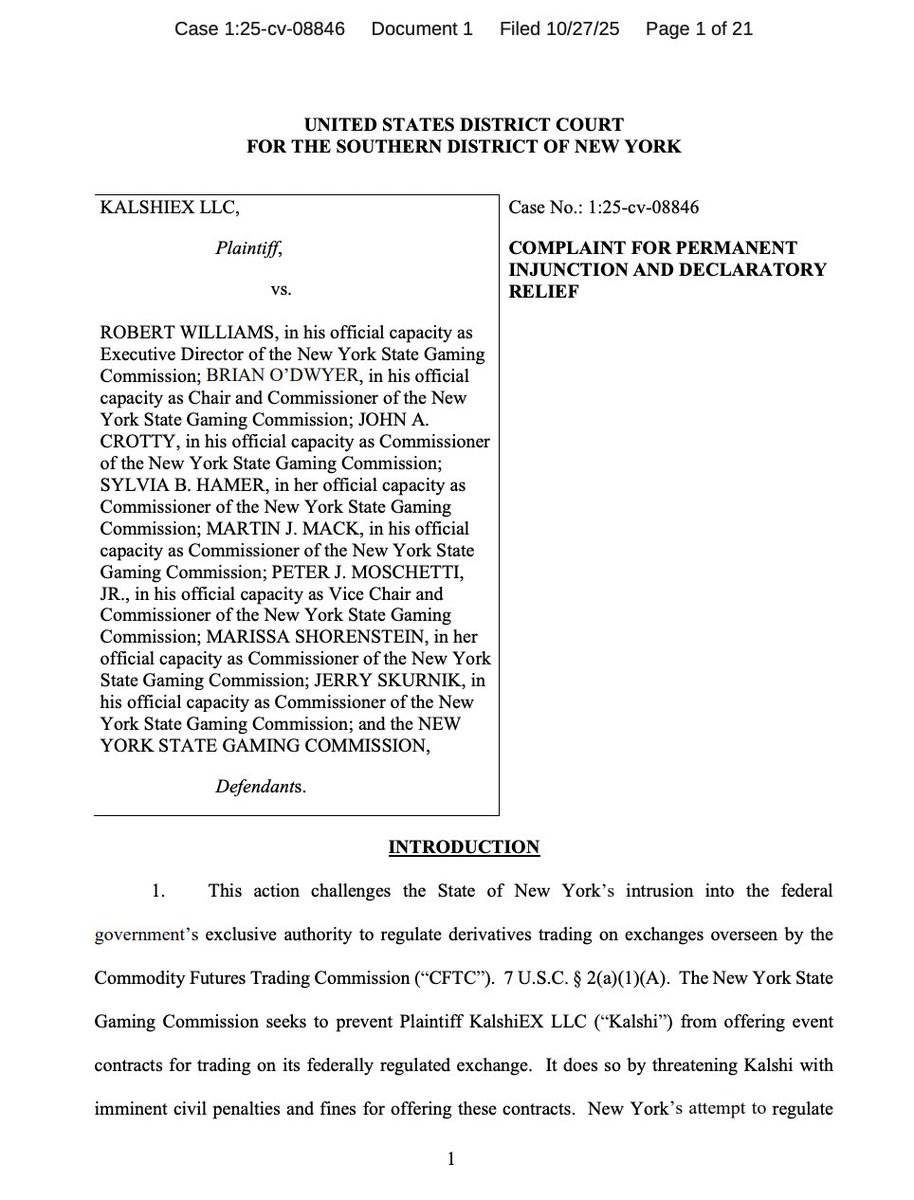
 "Earlier this year, federal courts in Nevada and New Jersey granted Kalshi preliminary injunctions to prevent similar state overreach."
"Earlier this year, federal courts in Nevada and New Jersey granted Kalshi preliminary injunctions to prevent similar state overreach."

 19) Now contrast that with the “examples” of “events” that the CFTC lists on its website as illustrative of an “event contract”:
19) Now contrast that with the “examples” of “events” that the CFTC lists on its website as illustrative of an “event contract”: